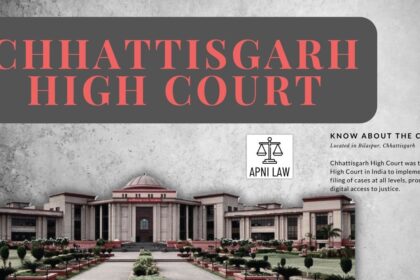Introduction
The Kerala High Court has laid down clear guidelines allowing banks to immediately freeze suspicious accounts, even without any prior notice. The court has also directed the Reserve Bank of India (RBI) to create a formal Standard Operating Procedure (SOP) to govern these actions. This step comes amid growing fears over financial cybercrimes, especially through digital payments platforms such as UPI.
Facts of the Case
Two customers of South Indian Bank filed writ petitions after their accounts were frozen. The bank had frozen their accounts on suspicion of unusual transactions that did not match their declared income levels. These account holders argued that they were running legitimate businesses and called the freeze arbitrary and unfair. Importantly, neither the police nor any law-enforcement agency had asked the bank to freeze the accounts. The bank had only reported the suspicious activity and freezing to the RBI. In response, the RBI claimed that banks do not have the power to freeze accounts unless a court or law enforcement agency requests them to do so.
What the Court Says
Justice M.A. Abdul Hakhim delivered the judgment. The court emphasized that financial cybercrime has surged, especially with the rise of digital payments. It held that RBI, under Section 35A of the Banking Regulation Act, has a mandatory duty to protect the banking system and the national economy. The court stated that banks must help prevent financial abuse.
If banks fail to act on suspicion, they risk becoming accomplices in financial crime. The court noted that while RBI already has guidelines on freezing accounts when KYC is not updated or material information is hidden, there are no clear rules on how banks should act when transactions simply look suspicious. The court added that banks are covered under the Prevention of Money-Laundering Act (PMLA) because they are “reporting entities.” To fulfill the PMLA’s objectives, the court said banks should have the power to freeze operations in suspicious accounts for a limited time, without warning the account holder, when there are reasonable grounds for suspicion.
Why This Decision
The court then issued specific interim guidelines. Banks may impose a debit freeze, meaning they can block outflows, when they reasonably suspect a transaction. On the very day they freeze an account, they must inform the account holder via SMS and registered post. They must also report the freeze to the local cyber-crime police authority, as per RBI’s existing rules. If the account holder provides an explanation, the bank should review it and decide within a week.
If the explanation is missing or unsatisfactory, the bank may continue the freeze for up to three months after notifying the authorities. If no law-enforcement agency responds within that period, the bank must lift the freeze so that the account holder can access their credit balance. The bank must notify the account holder of this change. After unfreezing, the bank may allow normal operations or ask the account holder to close the account. If the bank rejects the account holder’s explanation unfairly, the account holder can challenge that decision in court.
Implications
These guidelines could significantly strengthen the fight against cyber-financial crime in India. Banks will now have a clear legal framework to act swiftly when they detect suspicious activity. This could prevent misuse of bank accounts for money laundering or fraud. For customers, however, this raises new risks, their accounts could be frozen without warning, even if they have done nothing wrong. On the flip side, the requirement to notify them and allow explanations provides some protection.
By ordering the RBI to draw up a formal SOP, the court ensures that there will be uniform procedures in place across all banks. This could improve transparency and reduce arbitrary freezes. The move also underlines the regulator’s role in safeguarding the financial system, giving banks a duty not only to report suspicious activity but also to act on it promptly. Overall, the judgment balances the need to curb financial crime with the rights of account holders.








